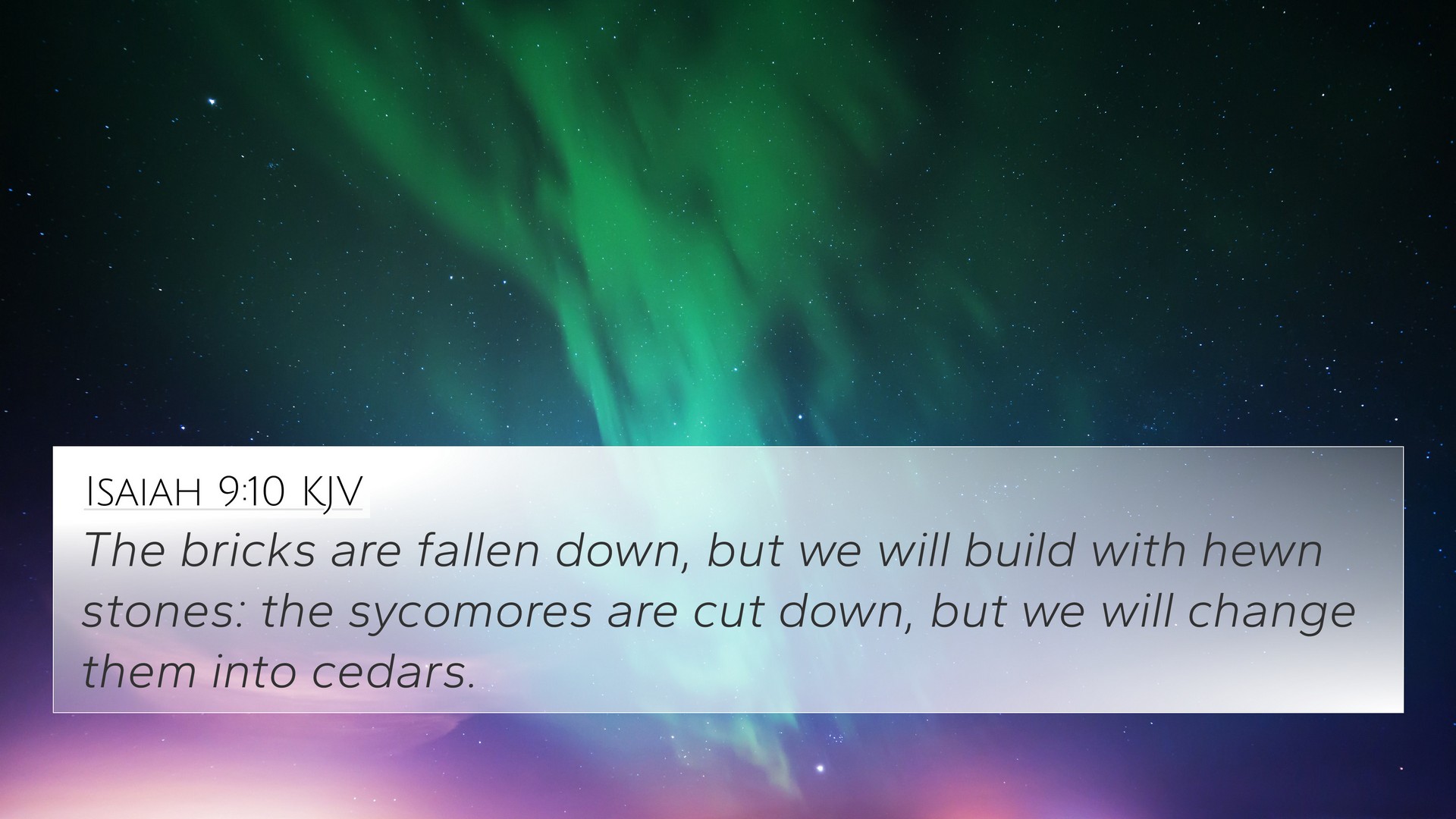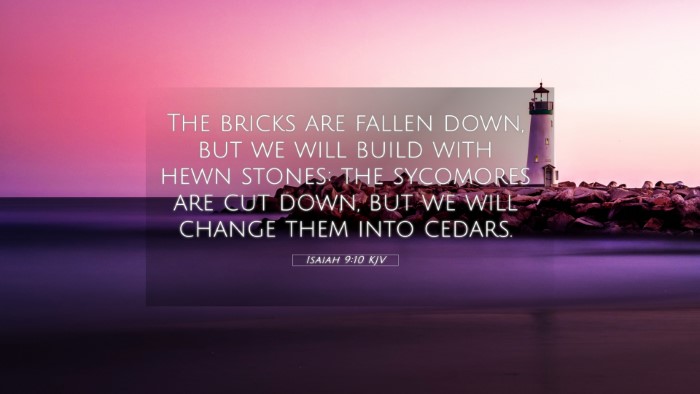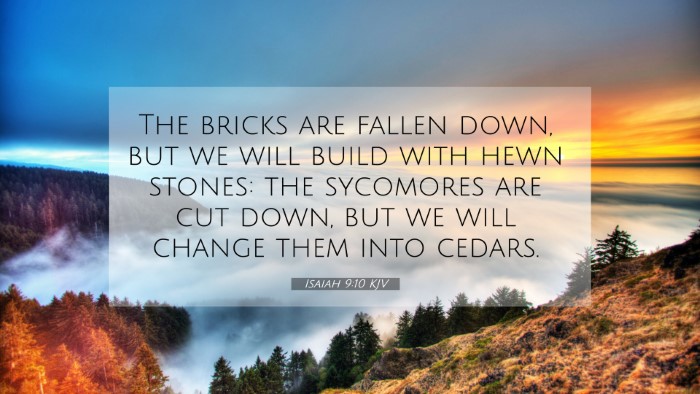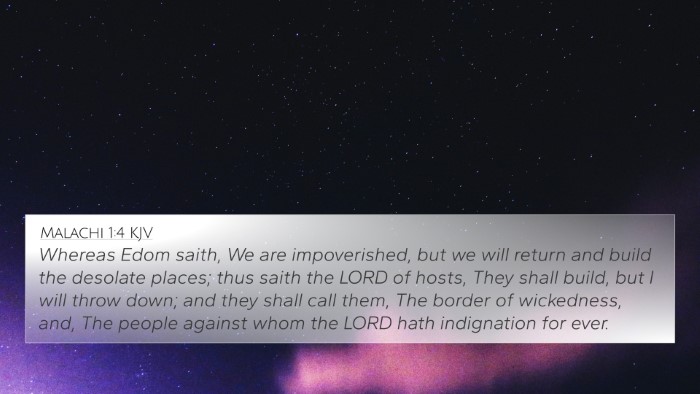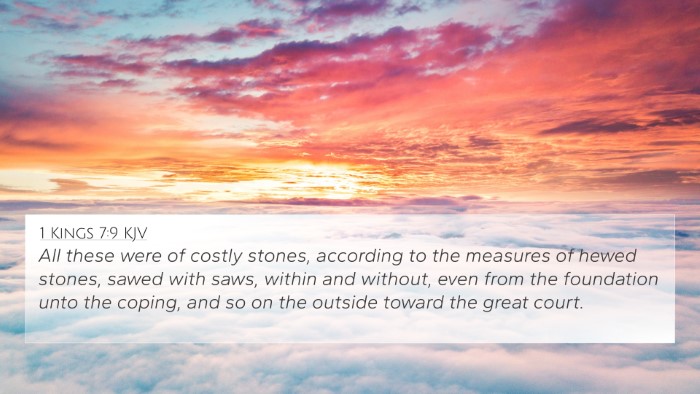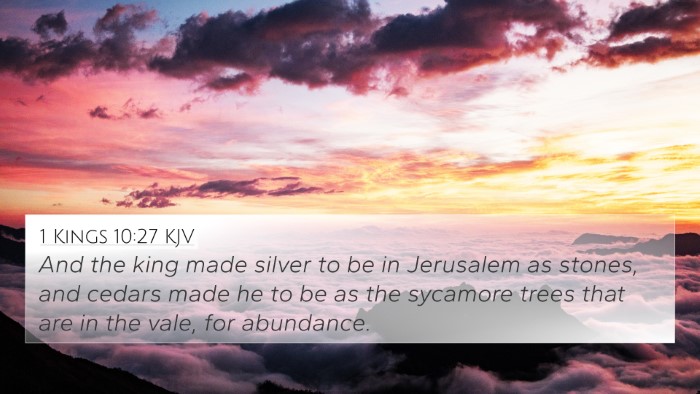Meaning of Isaiah 9:10
Isaiah 9:10 is a significant verse found within the prophetic text of Isaiah. It speaks of a response that indicates pride and resistance against God’s judgment. This verse states, "The bricks are fallen down, but we will build with hewn stones: the sycomores are cut down, but we will change them into cedars." This declaration reflects a human tendency to respond to divine chastisement with obstinate defiance rather than humility.
Contextual Background
Matthew Henry points out that this verse reflects the pride of the Israelites. Instead of turning to God in repentance during times of calamity, they resolved to rebuild with greater strength and resources, showcasing a desire to defy the intended lesson from divine judgments.
Albert Barnes elaborates on the historical context, indicating that this statement speaks to the condition of Israel post-captivity and their aspirations to restore their former glory, alluding to their reliance on material strength as opposed to spiritual revitalization.
Adam Clarke sheds light on the metaphorical significance of bricks and stones, where he emphasizes the transition from frail and easily destructible materials (bricks) to more durable (hewn stones and cedars), illustrating their focus on outward appearances and human wisdom over faith in God’s provision and protection.
Biblical Themes and Cross-References
- Psalm 127:1: "Unless the Lord builds the house, the builders labor in vain." This shows the futility of human effort without divine blessing.
- Jeremiah 18:1-6: The potter's lesson speaks of God shaping nations and hearts, suggesting a need for submission to God's will.
- Hebrews 12:25: A warning not to refuse God who speaks. The Israelites' reaction serves as a testimony of what happens when people err in listening.
- Proverbs 16:18: “Pride goes before destruction” links the themes of pride and downfall evident in Israel's vow.
- Lamentations 3:40: "Let us search and try our ways." This emphasizes self-examination, contrasting their defiant response.
- Isaiah 5:20: Woe to those who call evil good and good evil; illustrating the distorted perspective of the Israelites.
- Zechariah 4:6: "Not by might, nor by power, but by my spirit." A reminder of the true source of strength.
- Matthew 7:24-27: The wise builder parable underscores the importance of a foundation built on Christ.
- Romans 1:22: "Professing themselves to be wise, they became fools," highlighting the consequence of human foibles without God.
- 1 Corinthians 3:12-13: The quality of foundation and work will be tested by fire, reinforcing the call to a spiritually sound foundation.
Reflections on Human Pride and Divine Retribution
This verse calls to mind the broader Biblical theme of human pride contrasted with God’s judgments. The Israelites' pompous resolve to rebuild symbolizes a rejection of the very message they should learn from adversity. It underscores the need for humility in the face of God’s discipline and a heart that seeks restoration rather than rebellion.
Modern Application
In today’s context, believers are reminded to examine their responses to life's challenges. The temptation to rely on self-sufficiency often leads away from divine truths. This verse implores a reconsideration of priorities, focusing on spiritual over material foundations, aligning with the New Testament ethos of faith in Christ's teachings.
Conclusion
Isaiah 9:10 serves as a powerful reminder of the consequences of pride and the importance of returning to God in times of distress. By understanding this verse's profound implications through cross-referencing and biblical connections, we can gain deeper insights into the nature of God’s relationship with His people. As such, this verse invites an introspective journey into our own lives, encouraging humility and reliance on divine wisdom over worldly wisdom.
